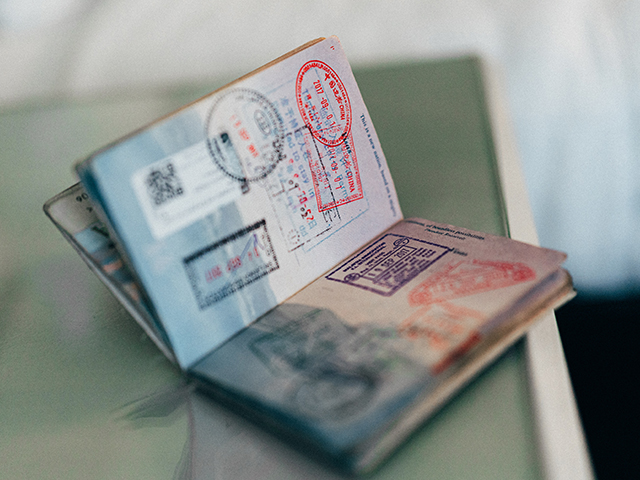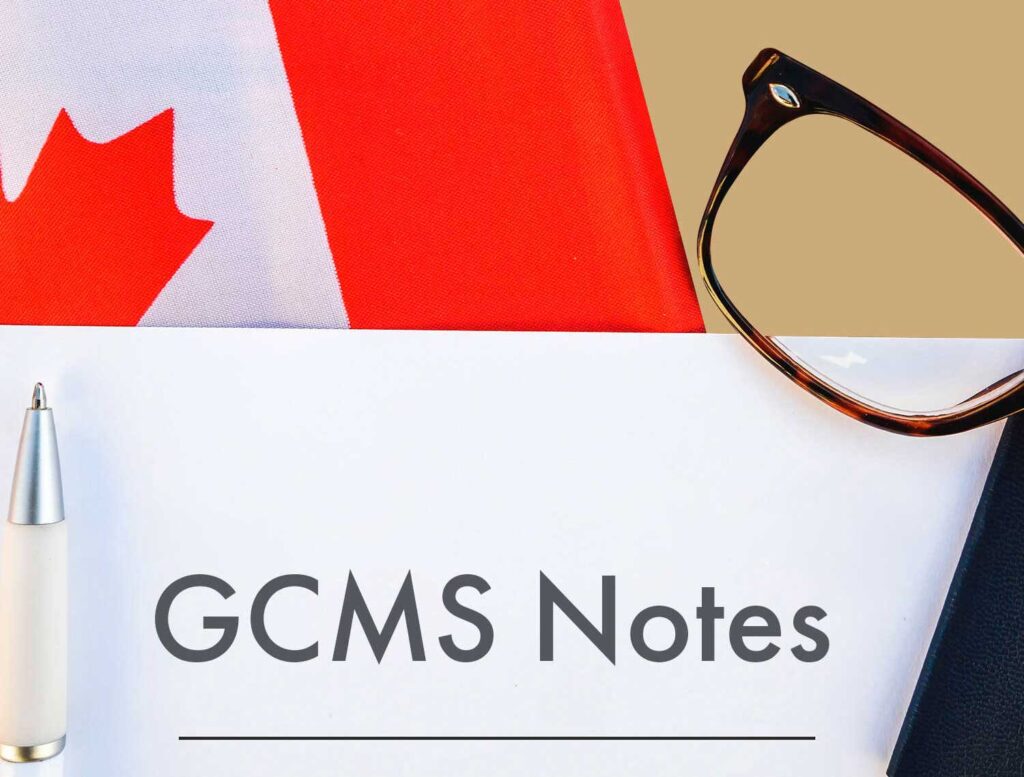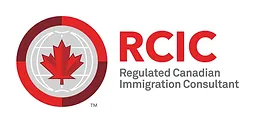Our Services

Permanent Residence
A permanent residence is a foreign national who has been granted permanent resident status by immigrating to Canada. Permanent residents are not Canadian citizens but rather citizens of other countries.
A permanent resident is required to meet certain residency obligations to maintain your status as a permanent residence in Canada.
Immigration, Refugees and Citizenship Canada (IRCC) facilitates permanent residents in a way to maximize their economic, social and cultural contribution to Canada while protecting the safety, health and security of Canadians at the same time.
Canada is home for many immigrants, welcoming over 300,000 immigrants every year from all parts of the world. There are more than 70 different Canadian immigration programs that can result in a Canadian permanent resident visa for qualified applicants.
Canadian immigration programs include but not limited to:
- Express Entry: Federal Skilled Worker, Federal Skilled Trades and Canadian Experience Class.
- Provincial Nominee Programs (PNP)
- Family Sponsorship
- Self Employed
- Canadian Citizenship
Book an initial consultation if you want to find out available options of becoming a permanent resident in Canada.

Express Entry
Express Entry is intended to manage applications for permanent residence in certain economic programs in Canada.
In January 2015, Canada launched a new electronic system known as the Express Entry System. The Express Entry is an online system that the government of Canada uses to manage applications for permanent residence under three economic programs in Canada such as:
The Federal Skilled Worker,
The Federal Skilled Trades and,
The Canadian Experience Class.
Federal Skilled Worker (FSW)
You must meet all the minimum requirements to be eligible under this program. Then your application will be assessed based on six selection factors. Such as: age, education, work experience, a valid job offer, English and/or French language skills, and adaptability.
Applicant who score minimum of 67 points on the selection factors and have at least one year of continuous, full time or part time paid work experience obtained within the last ten years in one of these National Occupational Classification (NOC) TEER categories:
- TEER 0
- TEER 1
- TEER 2
- TEER 3
Federal Skilled Trades (FST)
Individuals who have two years of full time work experience in a skilled trade and meet all jobs requirements for that skilled trade of the National Occupation Classification (NOC)
Canadian Experience Class (CEC)
Individuals who have recently gained Canadian work experience with the proper authorization or have recently graduated and worked in Canada can immigrate under this program.
You just need to submit an Expression of Interest (EOI) under any one of the above-mentioned federal programs. You can also do so under a participating provincial immigration program to the Express Entry Pool. Under it, you will be ranked by the point-based system which is referred to as Comprehensive Ranking System (CRS). Your skills, education, language ability, work experience, and other factors are assessed by CRS, and you are granted points on the basis of those factors.
Great Start Immigration Services will assist you to build a strong express entry profile and fulfill the conditions set by the Canadian authorities.
Contact our professionals to help you get started.

Provincial Nomination Program
Individuals applying under this category must have the required education, skills and work experience to be eligible for Provincial Nominee Program. Provincial Nominee Program is designed to enable provinces to support individuals who expressed their interest to settle and contribute to the economic development of a particular province and also to Canada. Some provinces and territories have multiple nomination programs that target students, foreign workers and business people.
How you will apply depends on which Provincial Nominee Program stream you are applying to. You might need to apply using the paper-based process or the online process through Express Entry.
Canada has ten provinces and three territories. So you must first decide which province you want to live in Canada. Then apply to that province or territory to be nominated. The province will review your application based on certain eligibility criteria such as: If you plan to reside in their province, if you meet their labour market needs and as well as if you meet the minimum criteria of at least one of the federal immigration programs under Express Entry.
Upon nomination by a province, you can submit a paper application for permanent residence to Immigration, Refugees and Citizenship Canada (IRCC) and if it’s through Express Entry, you must get an invitation to apply (ITA) from IRCC before you can submit an electronic application for permanent residence. Most Express Entry applications are processed in six months or less.
To be nominated by a province or territory, individuals must follow the instructions on their website and contact the province directly. Each province has different criteria and is subject to change without notice.
Regardless of where you plan to live in Canada, you will have to pass a medical examination and get a police clearance certificate.
Our consultants can help you streamline your provincial nomination options.
If you want to get more information about the entire process, please book a consultation with our immigration consultant today.

Family Class Sponsorship
Canadian citizens and permanent residents can sponsor their family members to become permanent residents in Canada.
Individuals who have family members in Canada can get their relatives to sponsor them. Relatives such as:
- Father or Mother
- Grandfather or Grandmother
- Spouse, common-law or conjugal partner
- Dependent child
- Grandchildren
- Adopted child or child to be adopted
- Brother or Sister
- Uncle, aunt, nephew or niece
If however, the sponsor does not have any living relative who could be sponsored, and also does not have any relative who is a Canadian citizen or a permanent resident or registered Indian, and then he or she can sponsor any relative regardless of age or relationship.
Family class program is intended for family reunification of close relatives who are Canadian citizens or permanent residents and at least 18 years old.
There are certain requirements a sponsor must meet such as: The sponsor must:
- Be 18 years of age or older.
- Be Canadian citizen, permanent resident or registered Indian.
- Reside in Canada or intend to live in Canada.
- Sign an undertaking promising to provide for basic essential needs of the sponsored person.
- Meet the strict income threshold for the past 12 months (there are some exceptions)
There are some certain factors that may restrict a potential sponsor such as:
- Bankruptcy
- Receiving social assistance for a reason other than disability
- If the sponsor is subject to a removal order
- Detained in any penitentiary such as prison, jail or reformatory
- In default of any previous undertaking
- Convicted of a violent crime
Nevertheless, if the sponsor meets all the requirements, their relatives can study, work and live in Canada if they eventually become permanent residents of Canada.

Business / Investor Immigration
Business Immigration has been a component of the Canadian immigration system. It’s design to attract successful business people.
Business Immigration Program targets individuals who own businesses, managerial experience and sufficient financial resources to establish themselves in Canada.
Canada values business people and allows them to come to Canada to contribute to the strengthening and development of the Canadian economy and eventually become Permanent Residents of Canada through these programs. The program facilitates the migration of business immigrants to Canada in order to contribute directly to the creation of jobs and businesses in Canada.
There are three categories under the business immigration: Such as
- Immigrant Investors
- Entrepreneurs and,
- Self Employed Persons
To qualify under these streams, potential applicants must basic admissibility requirement relating to health and security amongst other eligibility requirements.
Canada’s provinces and territories offer various streams and opportunities to facilitate the immigration of entrepreneurs, self-employed immigrants and active investors to provide business immigration avenues for immigrants seeking to own and actively manage a business in Canada.
Contact us to know if you qualify for any of Canada’s temporary or permanent business immigration programs. We can help assess your eligibility.

Canadian Citizenship
The government of Canada welcomes many immigrants to become citizens on the condition that they meet certain eligibility criteria.
To be eligible to become a Canadian citizen, you must:
- Be at least 18 years old to apply.
- To apply for children under 18:
- The child’s parent or legal guardian must do the application and one parent must be a Canadian citizen or is applying at the same time.
- Hold a permanent resident status.
- Have resided in Canada for 3 years (1,095 days) in the past 5 years before applying. (Except for children under 18 years).
- Have filled or may need to file your income tax in Canada for at least 3 years during the 5 years before the date you apply.
- Pass the citizenship test on your rights, responsibilities and knowledge of Canada if you are between 18-54 years old.
If you are between the ages of 18-54 years old, you must meet the Canadian language benchmarks (CLB) level 4 or higher in speaking and listening or academic documentation proving secondary or post-secondary school was in English or French such as school certificate, masters certificates etc.
Upon fulfilling the necessary requirement by the Immigration Refugee and Citizenship Canada, they will become a Canadian citizen, with all rights, freedom and responsibilities associated with Canadian citizen.
However, there are some restrictions that may prevent you from becoming a Canadian citizen.
Book a consultation if you need help with your citizenship application.

Temporary Residence
A temporary resident is a foreign national who is legally authorized to enter Canada to study, work and live in Canada for a specific period.
A temporary resident visa (TRV) is an official counterfoil document issued by a Canadian visa office that is placed in your passport to show that you have met the requirements for admission to Canada as a visitor, student, worker or a temporary resident permit holder.
To be eligible for a temporary resident permit, a foreign national must demonstrate that their visit to enter or stay in Canada is justified and outweighs the health or safety risks to Canadian society, as determined by a border service or immigration officer. For more information: https://www.canada.ca/en/immigration-refugees-citizenship/services/immigrate-canada/inadmissibility/temporary-resident-permits.html

Study Permit
A study permit is a written authorization issued by Immigration, Refugees and Citizenship Canada to foreign students authorizing them to engage in studies in Canada.
Foreign students are a prescribed class of persons who may obtain temporary resident status and who have been issued study permits or authorized by the regulations to study. They have the same obligations as temporary residents.
As a general rule, foreign nationals need a study permit to study in Canada. There are some restrictions however.
In order to apply for a study permit, you need an acceptance letter from a designated learning institution (DLI) in Canada. Proof of financial support as well as police certificate and medical examination might be required.
After completing a program of studies in Canada, you may be eligible to apply for a post-graduation work permit (PGWP) and subsequently transition to permanent residence.
In most cases, you must apply for a study permit before you can come to Canada. Except you are a national of one of the exempted countries or the duration of your intended course of study is less than 6 months.
You need to satisfy the visa officer that you have enough funds to pay for tuitions, accommodation and food while you are studying in Canada.
Applying for a Canadian study visa can sometimes be cumbersome, because a single mistake or error can lead to visa application rejection.
Our regulated immigration consultants are capable of guiding and helping you submit a strong study permit application as well as working with you through the entire application process.
Contact us today for your study visa matters.
Please book a consultation with us to discuss the application process.

Visitor Visa
A Canadian visitor visa is also referred to as a Temporary Resident Visa (TRV). A TRV is an immigration document that allows foreign nationals travelling to Canada either as a visitor, student or temporary worker for less than 6 months to enter Canada. Temporary Resident Visa (TRV) is mostly required to enter Canada, unless you are from a visa exempt country.
There are two types of visitor visas: single and multiple entry visas.
A single Entry Visa allows you to enter Canada only one time.
A multiple Entry Visa gives you unlimited access to enter and leave Canada at will for as long as the visa remains valid. A multiple entry visa may be valid for up to 10 years; depending on the validity of your passport or at the discretion of the issuing officer.
You must meet some basic requirements to get a visitor visa. You must:
- Have a valid passport
- Be in good health
- Have no criminal or immigration-related convictions
- Convince an immigration officer that you have ties—such as a job, home, financial assets or family—that will take you back to your home country
- Convince an immigration officer that you will leave Canada at the end of your visit
- Have enough money for your stay
The amount of money you will need depends on how long you will stay and if you will stay in a hotel, or with friends or relatives.
You may also need a medical exam and letter of invitation from someone who lives in Canada.
Do you want to come to Canada for a visit?
If you need to obtain a temporary visitor visa or find out the entire process, please book a consultation now.

Super Visa
A super visa is a multi-entry visa that allows a parent or grandparent of permanent residents or Canadian citizens visit and live with their children and grandchildren for up to 5 years at a time for a period up to 10 years in Canada.
There are specific requirements for a super visa, including the need for medical insurance. You must meet all the criteria to be eligible.
To be eligible for a super visa, you must
- be the parent or grandparent of a Canadian citizen or a permanent resident of Canada
- have a signed letter from your child or grandchild who invites you to Canada that includes
- a promise of financial support for the length of your visit
- the list and number of people in the household of this person
- a copy of this person’s Canadian citizenship or permanent resident document
- have proof of private medical insurance from a Canadian insurance company
- This medical insurance needs to
- be paid in full, or in installments with a deposit (quotes aren’t accepted)
- be valid for at least 1 year from the date you’ll enter Canada
- cover your health care, hospitalization and repatriation
- provide for at least $100,000 emergency coverage
- This medical insurance needs to
Do you have a question about super visa?
If you would like to remain in Canada as a visitor longer than the time you were given at the port of entry; we can help you extend your stay.

Work Permit
In general, most foreign nationals need a work permit to work legally in Canada.
Work permits are needed for individuals who seek to work in Canada for a temporary period of time.
There are two main types of work permits:
- Open Work Permits
- Employer Specific work permits.
An open work permit allows an individual to work for any employer in Canada. Except for example: Who is listed as ineligible on the list of employers who have failed to comply with the conditions or Who regularly offers striptease, erotic dance, escort services or erotic messages.
An employer specific work permit allows an individual to work according to the conditions stated on the work permit, which includes: the name of the particular employer, the duration of work and location of the work.
Irrespective of where you apply, you must:
- Prove to an officer that you will leave Canada when your work permit expires,
- Show that you have enough money to take care of yourself and your family members during your stay in Canada and to return home.
- Obey the law and have no record of criminal activity (we may ask you to give us a police clearance certificate),
Our Other Services
Global Case Management Systems (GCMS)
The Global Case Management System is a electronic data management system used b immigration (IRCC) and Canada Border Services Agency (CBSA) to track all permanent and temporary immigration applications within Canada and overseas.
The GCMS Notes contains the correspondence to and from IRCC, the detailed notes of the IRCC immigration officers who reviewed the application, and the entire applicant’s supporting documents
Usually, refusal letters issued from IRCC are generic and do not provide much information about officer’s concerns. GCMS notes are especially important to know the actual refusal reasons of a refused application.
The Access to information and Privacy Act is a law that allows people to have access to Canadian Government documents. If you intend to get access to those documents, you need to place an ATIP request.
To be eligible to apply for GCMS notes, you must be a Canadian citizen, a Canadian permanent Resident, or an individual or corporation present in Canada.
Permanent Resident Card Renewal
Permanent residents must have a valid permanent resident card (PR card) or permanent resident travel document (PRTD) to return to Canada by plane, train, bus or boat. You must present a valid PR card when required. You may not be allowed to board without a valid PR card.
If your card expires, we can assist you to apply for a new one.
Application Review
We review applications prepared by clients. We check the application for relevant supporting documents and accuracy. We will provide you with feedback after review of your application.
You may be eligible for many of Canada immigration programs at the federal or provincial level. Depending on age, level of education, work experience and language proficiency. Let us help you discover the immigration options that are available to you and at the same time match your profile.
Consult with us! We will evaluate your eligibility and identify the best immigration option for you.
Let Great Start Immigration Services help you discover the best immigration program that suits your specific need.





Let's Make Your Migration Memorable!
Book an Initial Consultation with us to understand and assess your specific case and know your immigration goals.
